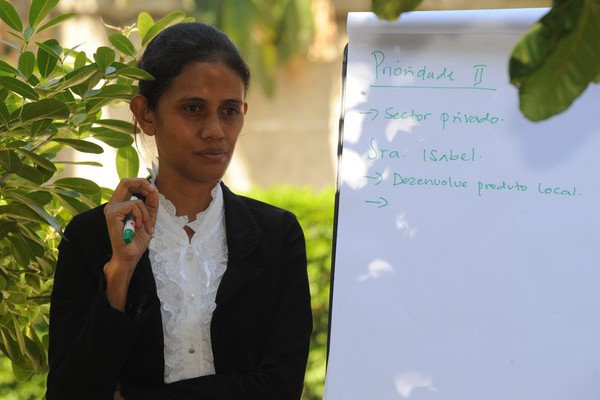Interpeace and its local partner, the Centre of Studies for Peace and Development (CEPAD), have been supporting the peacebuilding process in Timor-Leste since 2007.
Timor-Leste still faces considerable challenges in its transition from post-conflict reconstruction to stable peace. Since its independence in 1999, Timor-Leste has faced successive political crises and cycles of violence. These crises have highlighted deep divisions and unresolved issues, dating back to the period before and during the struggle for independence. The aftermath of the past political turmoil has left several unresolved challenges, including: a deep gulf between citizens, their authorities and elected representatives; disenfranchised youth and high youth unemployment; land disputes; and domestic violence.
The overarching objective of the Programme of Research and Dialogue for Peace (PRDP), a joint initiative between Interpeace and CEPAD, is to help break the cycle of violence and create a climate in which the people of Timor-Leste can identify and address priority issues in a non-violent and sustainable manner.
Through its first consultative process, the CEPAD team was able to identify four main obstacles to peace in Timor-Leste: the promotion of individual and party interests over the national interest; the ineffective formal judicial system and the culture of impunity; the historical review of the resistance and the occupation, corruption, collusion and nepotism (KKN). CEPAD concentrates on addressing the latter issue locally known as KKN which threatens to become rampant and endemic.
CEPAD works towards overcoming this obstacle by improving public knowledge of KKN. It also promotes the adoption of national policies, legislation and public programmes that reflect consensus-oriented recommendations. CEPAD has created an advocacy coalition to press for legislative and policy reform, called the Group Promoting Change, which includes leaders in academia, civil society, the Catholic Church, the press, the judiciary and the armed forces. In addition, Interpeace and CEPAD have built five Peace Houses in Timor-Leste. The Peace Houses are based on the traditional custom of Fatin Nahe-biti, or “meeting at the mat” to discuss and resolve disputes.
Building on its growing reputation, in 2017 CEPAD signed Memorandums of Understanding with five key anti-corruption State Institutions, including the Anti-Corruption Commission (KAK) and the National Human Rights Institution (PDHJ). CEPAD also became the first and only civil society organization ever to enter an MoU with the Public Prosecutor’s Office. These agreements will further increase CEPAD’s authority and legitimacy to engage the public in demanding quality basic services and accountability in government.
Interpeace will continue to maintain its strong relationship with CEPAD through institutional accompaniment, mentoring, strategic reflection, and assistance in peacebuilding methodologies, M&E, and administration and finance.

